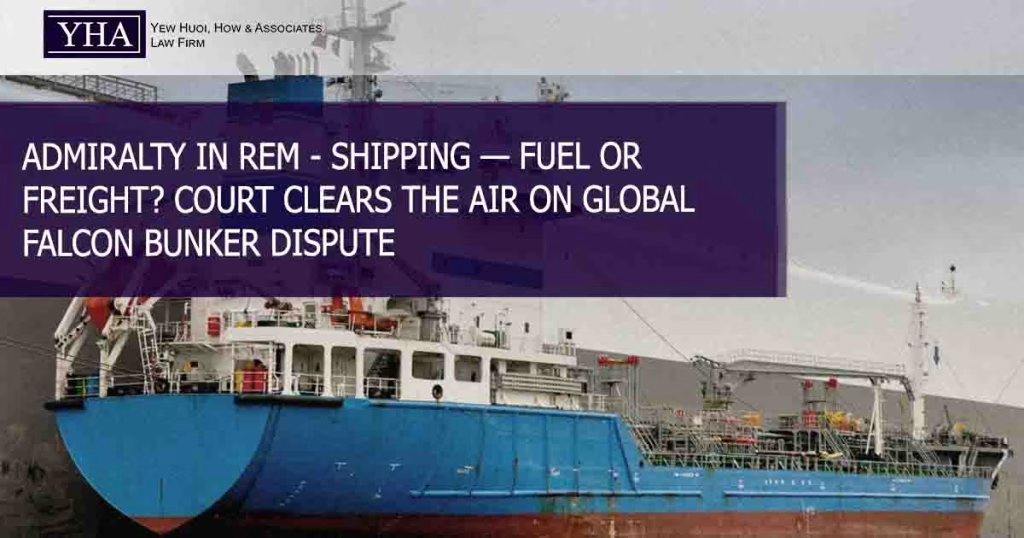Summary and Facts
In Global Falcon [2024] MLJU 1378, Meck Petroleum DMCC (“Meck”) supplied high-sulphur fuel oil (HSFO) to the vessel Global Falcon and subsequently claimed USD 1.3 million for unpaid bunkers. Meck initiated admiralty proceedings to arrest the vessel, asserting that the HSFO qualified as goods supplied for the vessel’s “operation or maintenance,” thus entitling them to a maritime lien.
However, the HSFO supplied had a sulphur content of 3.03%, exceeding regulatory limits for operational fuel use, and was loaded into the vessel’s cargo tanks rather than fuel tanks. The Global Falcon lacked scrubbers to process high-sulphur fuel, and the quantity of HSFO supplied was inconsistent with the vessel’s operational needs. Evidence later showed the HSFO was transferred to another vessel, indicating it was intended as cargo rather than operational fuel. Based on these factors, the court questioned if Meck’s claim met the admiralty jurisdiction requirements.
Legal Issues
- Qualification as Goods for Operation or Maintenance: Did the HSFO qualify as “goods or materials supplied for the operation or maintenance” of the vessel under Section 20(2)(m) of the UK Senior Courts Act 1981 (“UK SCA 1981”)?
- Admiralty Jurisdiction to Arrest the Vessel: Did the court have admiralty jurisdiction to arrest the vessel based on the HSFO supply?
Court Findings
- The court concluded that the HSFO, with a 3.03% sulphur content exceeding operational fuel limits and loaded into cargo tanks, was not meant for the vessel’s operation or maintenance. This conclusion was supported by:
- The vessel’s lack of scrubbers to utilize HSFO as fuel.
- The quantity of HSFO supplied, which far exceeded the vessel’s operational fuel capacity.
- Evidence showing the HSFO was discharged to another vessel, indicating it served as cargo, not operational fuel.
- For admiralty jurisdiction to be valid, the claim must meet Section 20(2)(m) or (n) of the UK SCA 1981: “supplied to a ship for her operation or maintenance” or “for the construction or repair of equipment of a ship or in respect of dock charges or dues.”
- The court held that Meck’s claim did not satisfy Section 20(2)(m) of the UK SCA 1981, as the HSFO was neither used nor intended for the vessel’s operation or maintenance. As a result, the court set aside the Warrant of Arrest, ordered the vessel’s immediate release, and granted the owners liberty to seek damages for wrongful arrest.
Reference Cases
- Meck Petroleum DMCC v The Owners And/Or Demise Charterers Of The Ship Or Vessel “Global Falcon” Of The Port Of Cook Islands [2024] MLJU 1378
- UK Senior Court Act 1981 Section 20(2)(m) & (n)
- The River Rima [1998] 2 Lloyd’s Law Rep 193
- Port of Geelong Authority v The Ship “Bass Reefer” 109 ALR 505
- Supreme Court Act 1981

